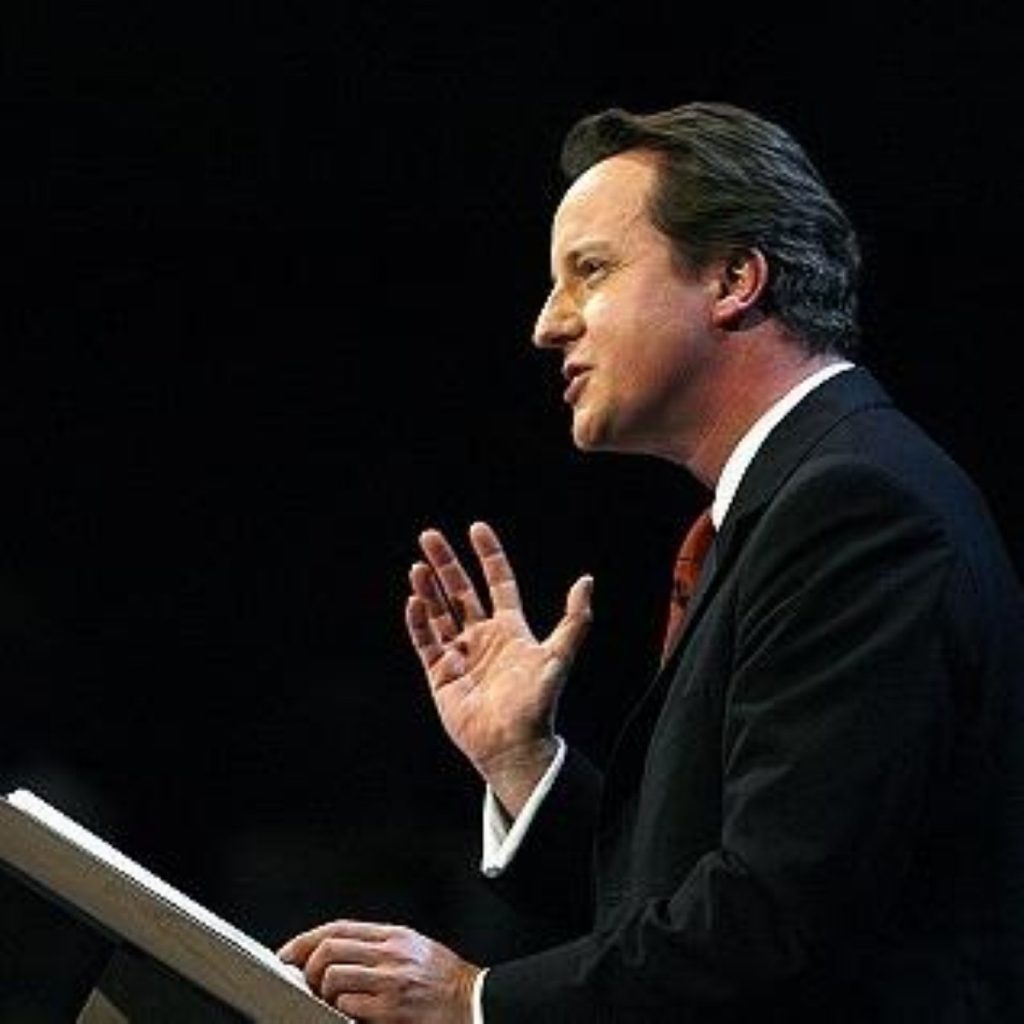Cameron: Libyan action in ‘national interest’
By Hannah Brenton
Military action to stop Muammar Gaddafi crushing the rebellion in Libya is “good and just and right”, David Cameron has said.
Speaking to the Scottish Conservatives’ spring conference in Perth, the prime minister repeated many of the sentiments he expressed in his earlier Commons statement, but outlined a broader ideological underpinning for action in Libya.
“This is where our interests and our ideals come together,” he said.


“Just because we can’t solve all the world’s problems, doesn’t mean we shouldn’t do what we can, where we can and when it’s in our national interest.”
Mr Cameron emphasised again and again that action in Libya was in Britain’s national interest.
“What has Libya got to do with us? My straightforward answer is a very great deal,” he said.
“It is in our national interest that countries on Europe’s edge are able to evolve to more open and democratic systems.
“If Gadaffi’s attacks on his own people succeed, Libya will once again become a pariah state, festering on Europe’s southern border. A source of instability, exporting strife beyond its borders.”
Earlier in the Commons, the prime minister referred to Colonel Gaddafi’s funding of the IRA in the 1990s, while in Perth he made reference to the Lockerbie bombing to emphasis the Libyan leader’s bloody connections to the UK.
“The people of Lockerbie just over 100 miles away from here, they know what he is capable of.
“So I am clear, taking action in Libya is in our national interest.”
The prime minister sought to allay concerns that action in Libya would take Britain into another conflict, maintaining ground forces will not be used.
“Is this going to be another Iraq? No. There will be no foreign occupation of Libya.”
The United Nations security council passed a resolution last night authorising the use of “all necessary measures” short of invasion to stop Col Gaddafi attacking civilians.
Britain will mobilise RAF Typhoon and Tornado jets, as well as air-to-air refuelling jets and surveillance aircraft to enforce a “no-fly zone”.
The Libyan foreign minister has announced an immediate ceasefire, but there is scepticism in Europe as to whether this will hold.









